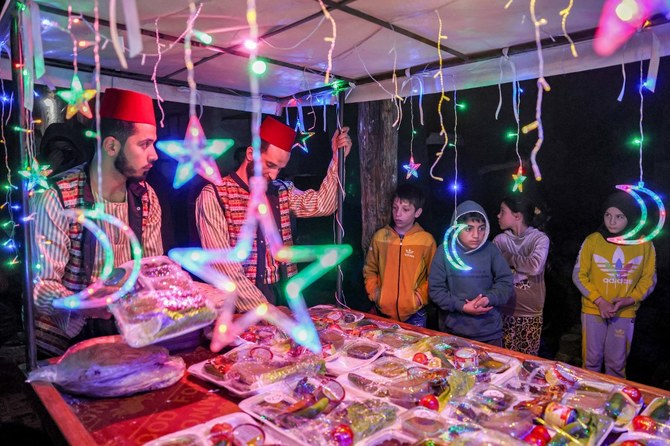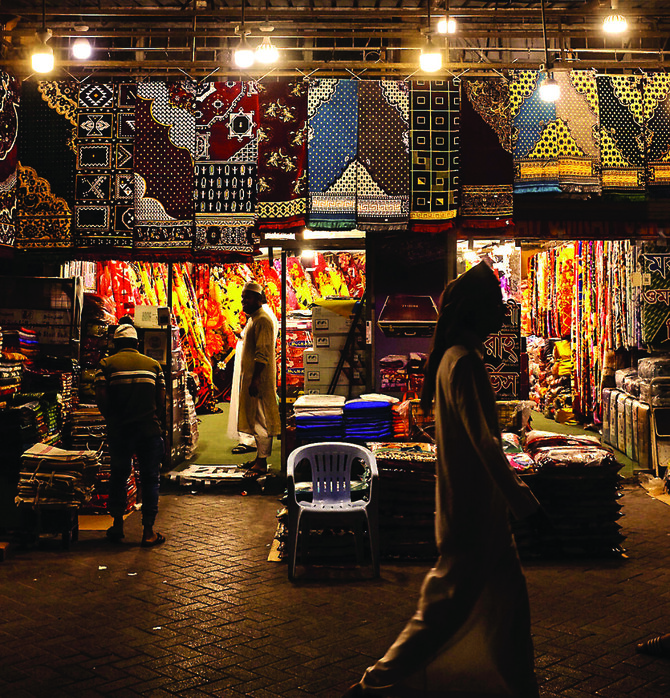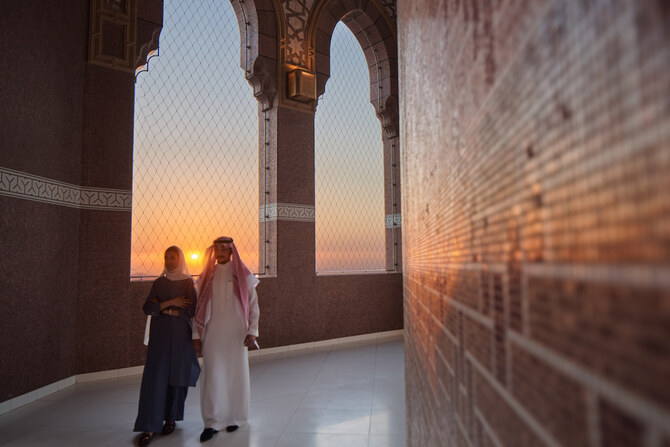IDLIB: In the city of Idlib in rebel-held northwestern Syria, many are struggling financially to maintain long-held traditions for the upcoming Eid-Al-Fitr holidays.
The Islamic holiday is expected to fall on April 21, but a deteriorating economy means many Syrians cannot afford to take part in traditional customs, such as buying new clothes and an assortment of food items to enjoy.
Abu Udai, a sweets vendor from Deir El-Zour, told Arab News “I am a father and could not provide all of my household’s needs, such as clothing for my children or getting sweets for Eid.
“Everything is expensive now and things are only getting worse. The prices are continuing to rise.”
Mohammed Abdulghafoor Musaed, who was browsing nearby at the same bustling market, said: “If you look at the people in the market, only 25 percent are buying goods.”
Musaed said that as Eid approaches, many people are borrowing money to buy festive necessities.
“Eid was a lot better before. Today, with the increasing dollar rate and fluctuating Turkish currency, there was a big difference in terms of purchasing power.”
In a region that is home to a population of 4.5 million, at least 4.1 million people are in need, while 3.3 million face food shortages, according to the UN Office for the Coordination of Humanitarian Affairs.
Civilians have also borne the brunt of an economy weakened by the 12-year civil war, sanctions and the earthquake that devastated the region in February.
However, for Syrian confectioner Mohammed Sameer Abadi, the upcoming holiday offers a glimmer of hope.
“The Eid atmosphere this year is excellent, and despite the rising prices, demand is good,” he said.
“When it comes to our profession, which is making sweets, demand has increased for olive oil biscuits.”
However, other businessmen, such as Taher Zkour Al-Bisa Zkour, told Arab News that the prices of goods in the market, even in his own clothing store, are too high for most people.
“Things have improved since the earthquake hit, but they are not as good as last year.”






















